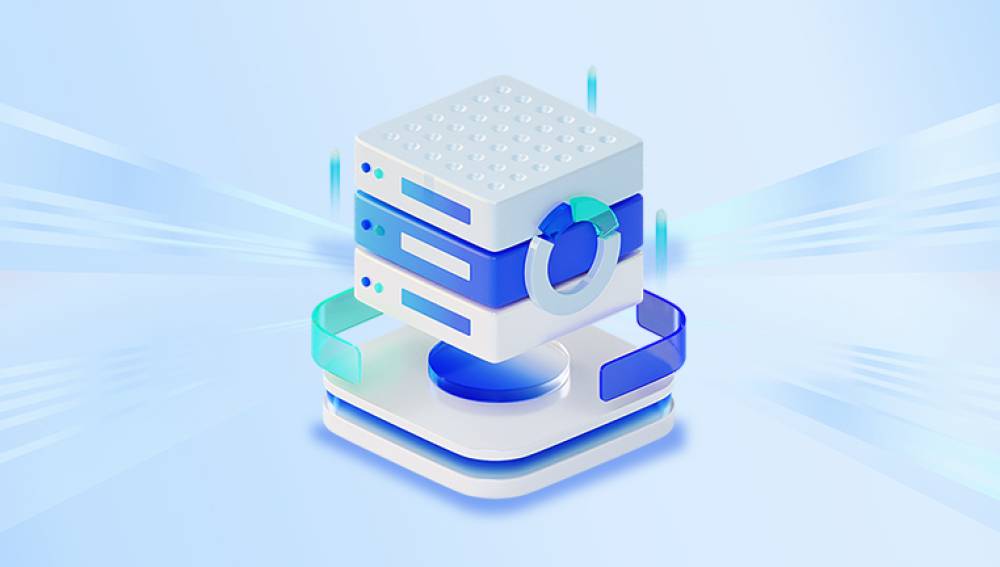Salt Lake City, nestled in the shadow of the Wasatch Mountains, is not just a hub of outdoor adventure and tech innovation. It’s also home to a growing network of data recovery experts dedicated to restoring lost files from damaged or corrupted hard drives.
Before diving into recovery options, it’s essential to understand the different types of hard drive failures. Not all data loss is created equal, and the underlying cause will often dictate the method of recovery and its likelihood of success.
1. Mechanical Failures
Mechanical issues are among the most serious. They occur when the physical components of the drive such as the spindle motor, read/write heads, or platters—are damaged or wear out. Common symptoms include:

Clicking, grinding, or buzzing noises
Drive not being recognized by the computer
Frequent crashes when accessing files
2. Logical Failures
These are related to software or file system corruption. The hard drive may still function normally from a mechanical perspective, but files may be inaccessible due to corrupted partitions, deleted data, or operating system issues.
3. Electrical Failures
Electrical surges, faulty power supplies, or damaged PCBs (printed circuit boards) can render a drive unreadable. These cases often require component replacement and professional diagnosis.
4. Firmware Corruption
Firmware is the drive’s built-in software. If it becomes corrupted, the drive may appear dead or malfunction. Recovering from this type of failure typically requires specialized tools and expertise.
First Steps: What to Do When a Hard Drive Fails
If you suspect your hard drive has failed, your first actions are critical. Following the wrong steps can further reduce the chances of recovery.
Do:
Power off the device immediately if you hear strange noises or suspect physical damage.
Unplug the hard drive from the system if you're not experienced in data recovery.
Seek professional help, especially if the drive contains sensitive or irreplaceable data.
Don't:
Open the hard drive casing in a non-cleanroom environment.
Install recovery software on the same drive you're trying to recover from.
Attempt physical repairs without the proper tools or training.
Local Data Recovery Options in Salt Lake City
Salt Lake City boasts several reputable hard drive recovery companies. Most offer free evaluations, no-recovery-no-fee policies, and tiered pricing based on the type of failure and complexity of recovery.
1. File Savers Data Recovery
With a cleanroom-certified environment and a reputation for handling complex cases, File Savers offers services for individuals, businesses, and government clients. They handle both mechanical and logical failures.
2. Utah Data Recovery
Located centrally in Salt Lake City, this company offers quick diagnostics, affordable pricing, and high success rates. Their specialties include RAID recovery, SSDs, and external hard drives.
3. Data Medics Salt Lake
Though based in Providence, RI, they have satellite services available in Salt Lake City. Known for transparent pricing and certified cleanroom facilities, they are a top choice for corporate data recovery.
4. Secure Data Recovery Services
Nationally known with a local presence in Salt Lake City, Secure Data offers a range of services backed by ISO-certified labs. They provide 24/7 emergency services and are known for handling government-level data security needs.
5. RESCUECOM
This mobile service provides on-site evaluations and basic recovery services. While they may not handle complex physical failures, they are ideal for quick help with software issues.
What to Expect from a Professional Recovery Service
When you bring your hard drive to a data recovery center, here’s a breakdown of the process:
Initial Diagnosis
The drive will undergo testing to determine whether the issue is mechanical, electrical, or logical. This often takes 24–72 hours.
Quote and Timeline
Based on the diagnosis, you’ll receive a cost estimate and expected recovery time. Mechanical recoveries may take up to two weeks, while logical recoveries are often faster.
Recovery Attempt
Technicians will clone the drive and attempt recovery from the copy. This step ensures the original data remains untouched. Using specialized software and cleanroom tools, data is extracted from the clone.
Data Return
Recovered files are typically returned on a new external hard drive or via encrypted cloud transfer.
Payment
Most services operate on a no-recovery, no-fee basis, though you may be responsible for evaluation or shipping costs in some cases.
Cost of Hard Drive Recovery in Salt Lake City
Costs vary widely based on the type of failure, size of the drive, and urgency of the recovery. Here’s a general breakdown:
Logical Recovery: $100–$500
Electrical Recovery: $300–$700
Mechanical Recovery: $500–$2.000+
RAID/NAS Recovery: $1.000–$3.000+
Rush or emergency services may add $200–$1.000 to the total.
DIY Data Recovery: When Is It Worth Trying?
While professional services are ideal for critical or complex recoveries, there are some scenarios where a DIY approach might work.
When to Try DIY:
The data isn’t critical.
The drive is still readable, but files are deleted or the partition is lost.
You’re comfortable using recovery software.
Recommended Software Tools:
Recuva – Best for quick recoveries on Windows.
TestDisk & PhotoRec – Open-source and effective for file system recovery.
EaseUS Data Recovery Wizard – User-friendly with preview options.
Stellar Data Recovery – Good for recovering multimedia files.
Caution: Never install recovery software on the drive you’re trying to recover. Always use a separate drive to avoid overwriting lost data.
Hard Drive Recovery for Businesses in Salt Lake City
For businesses, data loss can lead to significant financial losses, downtime, and regulatory issues. Fortunately, many Salt Lake City recovery providers offer B2B services, including:
RAID and server recovery
Virtual machine recovery
HIPAA- and GDPR-compliant procedures
Disaster recovery planning
Tech firms in areas like Lehi and Draper often rely on these services to support clients statewide, especially those handling sensitive health or legal information.
Preventing Data Loss: Best Practices for Salt Lake City Residents
Data recovery is valuable, but prevention is even more crucial. Whether you're a student, business owner, or home user in Salt Lake City, here are essential tips:
1. Backup Regularly
Use the 3-2-1 rule: three copies of your data, stored on two different media, with one stored offsite or in the cloud.
2. Protect from Power Surges
Use surge protectors or uninterruptible power supplies (UPS) to prevent electrical damage.
3. Avoid Heat and Moisture
Utah’s dry climate helps, but internal overheating remains a risk. Keep drives well-ventilated.
4. Handle with Care
Avoid moving external drives while they’re in use. Physical shocks can damage internal components.
5. Monitor Drive Health
Use tools like CrystalDiskInfo or Hard Disk Sentinel to check SMART stats and preempt failures.
The Role of Cloud Backup in Modern Data Recovery
As more individuals and businesses migrate to cloud services, reliance on physical drives is lessening. Platforms like Google Drive, Dropbox, OneDrive, and iCloud provide redundancy and ease of access. However, they’re not immune to accidental deletions or sync errors. Data recovery services can often assist in recovering cloud-synced data if the original files were stored locally at any point.
Specialized Recovery: SSDs, External Drives, and RAID Arrays
Hard drive recovery isn’t limited to spinning disks. Technicians in Salt Lake City are increasingly called upon to recover data from:
Solid State Drives (SSDs):
These drives are faster and more durable, but their failure modes (especially controller or NAND flash corruption) are trickier. Specialized tools are often required.
External Hard Drives:
Portable drives suffer from frequent drops and port failures. Data recovery labs handle cases involving broken USB connectors or water exposure.
RAID/NAS Arrays:
Businesses and advanced home users often store data across multiple drives in RAID setups. Recovery in these systems is complex and requires precise rebuilds of the RAID structure before file recovery can begin.
Choosing the Right Service Provider in Salt Lake City
When selecting a data recovery service, consider the following factors:
Experience and Certifications: Look for ISO-certified cleanrooms and technicians with experience in similar recoveries.
Transparency: Avoid providers that won’t give you a detailed quote or clear recovery policies.
Security: Choose services that offer data encryption, secure erasure of your media post-recovery, and confidentiality agreements if needed.
Customer Reviews: Check platforms like Yelp, Google Reviews, or Better Business Bureau for real feedback.
Legal and Privacy Concerns
If your hard drive contains sensitive data (medical records, legal documents, financial information), make sure the recovery provider adheres to privacy regulations. Some Salt Lake City firms specialize in HIPAA-compliant recoveries for healthcare institutions or attorney offices.
When Recovery Fails: Next Steps
In some cases, recovery isn’t possible due to severe platter damage, overwritten sectors, or encrypted drives with lost credentials. If that happens:
Ask for a full report to understand why recovery failed.
Request the return or proper disposal of your drive.
Evaluate whether partial recovery was possible—some firms can retrieve parts of your data even when a full recovery isn’t feasible.
Hard drive failure can strike at any time during a critical work project, a college final, or while backing up your child’s birthday videos. But thanks to the skilled professionals and advanced labs in Salt Lake City, hope is far from lost. Whether it’s a mechanical disaster or a logical mistake, there are effective, local solutions to help restore your data and peace of mind.
As the city continues to grow as a technology and innovation center, the demand for trustworthy, fast, and secure hard drive recovery services will only increase. With a proactive mindset and a solid understanding of your options, you can navigate the data recovery process with confidence and clarity.




